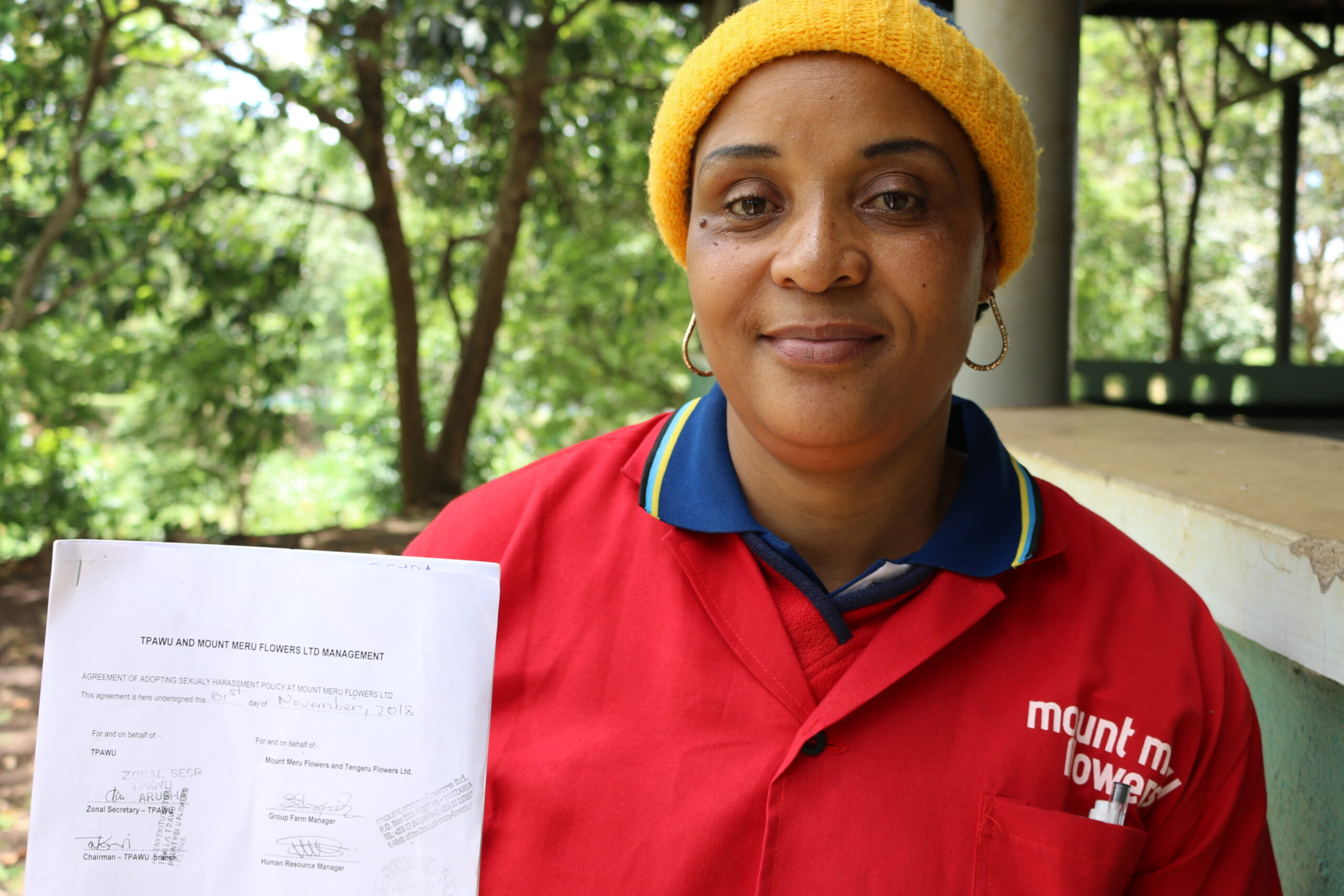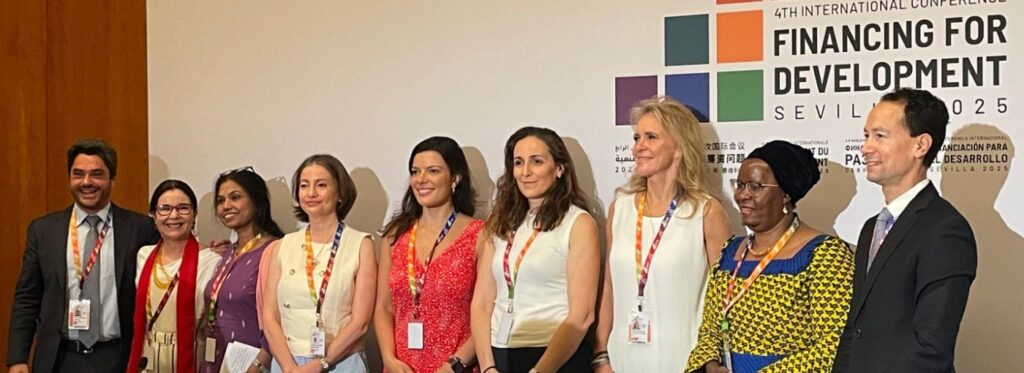Celebrating the fruits of negotiation training
Blog by Caroline Wahome, Regional Communication Officer for Hivos East Africa. This blog post was first published on the Hivos East Africa website.
Flora Mpukwini speaks firmly. She is not shy either as she does not mince her words when she narrates a case where a security guard at the farm was sexually harassing a fellow woman worker.
Flora has worked at the farm, Mount Meru Flowers in Arusha, for eight years. She recounts that sexual harassment cases went unreported for a long time as one was required to report to his or her supervisor. “Bosses were feared! Some of the staff cannot imagine approaching the supervisor or human resources to report a matter,” narrates Flora, who is now the head of the Gender Committee.
Sexual harassment policy
On November 1 2018, the farm adopted a sexual harassment policy which seeks prevention and management of sexual harassment at the workplace. It is the first flower farm (of the ten flower farms) partnering with the Women@Work Campaign in Tanzania with a sexual harassment policy. It is also the first sexual harassment policy adopted by Mount Meru Flowers.
Adoption of the policy has created awareness on what sexual harassment entails and how it can be addressed. It has created a good working condition as well. “We terminated the security guard after the Gender Committee presented the findings of the case to us. The fact that an action was taken gave confidence in the workers, that their reporting was not in vain. An aura of positivity in general, was also witnessed,” says Hamida Kilogo, Human Resources Manager at the farm.
Ms Kilongo further notes that the Gender Committee gives power to the staff (women) as tradition has been that it is only men who spoke out about issues or were in leadership. Further, it has also proved that everyone has the right to be heard and get a fair trial. Initially, the supervisors would be left to decide if to report the matter (sexual harassment) or not.
Also, initially the farm relied on the general constitution that guides on complaints and procures reporting mechanism. This meant that sexual harassment complaints were handled through / as a normal grievances procedure just like a case of someone who has stolen which should not be the case.
The Gender Committee conducts the training during lunch time, every three months. The training are conducted in departments as the farm employs about 900 workers.
Training in negotiating
Flora attributes self-confidence in the workers as a result of the training conducted by Tanzania Plantation and Agriculture Workers Union (TPAWU). “It is only men who spoke or participated in Collective Bargaining Agreements but not anymore,” says Flora with a proud smile unmistakable on her face.
“For sure the staff are more outspoken on various issues. The negotiation skills and understanding of labor laws taught to us by TPAWU cannot be undermined. The training seminars have also brought us belief in oneself. Knowing that you are speaking on behalf of 900 workers, you have to be confident and believe in yourself first,” adds Flora. Further, the training have brought order as initially; you’d find that individuals would want to table “personal issues” hence a lot of time was wasted as members deliberated on matters that held no water. However, that has now changed as the committee comes up with a proposal beforehand so that by the time they are going to a negotiation meeting, they have a clear agenda.
Through the negotiation skills, Flora and her team has been able to bargain for an increase in the annual leave days from 28 to 30, basic salary to be increased to Tsh200,000 from 130,000 ($87 from $56), house allowance from Tsh 25,000 to 50,000 ($11 to $22) and 90 days of maternity leave from 84.
While celebrating the successes, the Gender Committee acknowledges that a lot needs to be done for staff to understand labor laws. This is tied to the fact that illiteracy levels for farm workers are very low.
The Tanzania Plantation and Agricultural Workers Union (TPAWU) is the main trade union in Tanzania’s horticulture sector. Through its national and regional offices across Tanzania, TPAWU negotiates on behalf of workers, under collective bargaining agreements. It also conducts lobbying and advocacy for law and policy reform, for the purpose of contributing to improved labor practices. TPAWU is one of the implementing partners of the Women@Work Campaign in East Africa.











